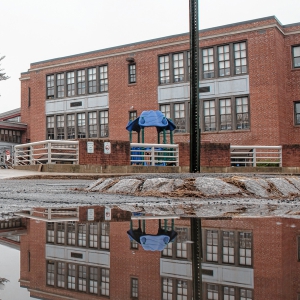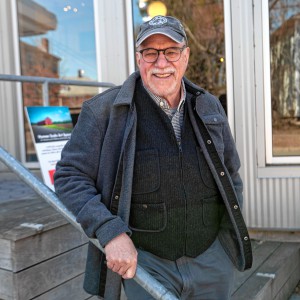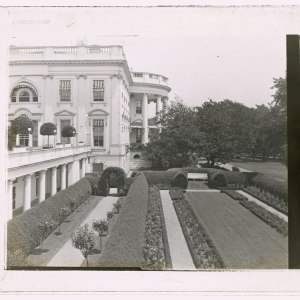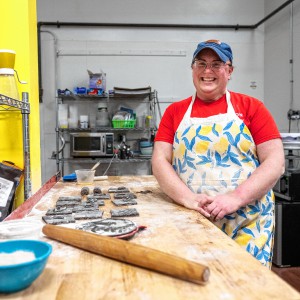Richard McCarthy: Tortured artists’ deaths no blaze of glory
| Published: 11-01-2024 5:09 PM |
When I was about 20 years old, I read A.E. Hotchner’s personal memoir of the writer Ernest Hemingway, “Papa Hemingway.” For readers who do not know, the end of Hemingway’s life came when, at the age of 61, he put a loaded gun to his head and pulled the trigger.
That final moment of his life was experienced by me more like the romantically tragic end of a novel or film than the hellish termination of a flesh and blood human being. This glorifying of a writer’s life as if it were something they had written rather than lived grew in me over the ensuing decade.
During that time I exalted the lives and deaths of a lot of self-destructive, tortured, often alcohol- or drug-addled men and women. It extended beyond writers to other artists, including rock musicians such as Jim Morrison, Janis Joplin and Jimi Hendrix, all of whom died at the age of 27. Those a bit younger than me could add Amy Winehouse and Kurt Cobain to this macabre club of pop stars who died at 27. I’m sure those still younger could add to the roll call of early demised popular idols.
By the time I was 30, I had lived my way to the understanding that, as a character in a play of mine said, “up close and considered in the first-person singular, there is no fine romance” to self-destruction.
One of the lives that led me to this understanding was that of Jack Kerouac, who was born and raised in Lowell, a little over a hundred miles east of the Gazette offices. He is most famous for his “spontaneous bop prosody,” as in his novel of a frenetic cross-country odyssey, “On the Road.”
I was interested enough in Kerouac and the rest of the Beat Generation writers when I was 21 years old to use a press pass to pepper the poet Allen Ginsburg about no less a subject than the meaning of life. If you type “Allen Ginsberg talks with Richard McCarthy about the word ‘should’” in your search engine, an old column of mine about that exchange should pop up.
But back to Kerouac.
At the age of 42, Kerouac retreated to St. Petersburg, Florida to live with his mother. As I have noted in a previous column, I spend a week or two in the St. Petersburg area most years. My first trip down there was in 1967, when Kerouac was living there. Even if you don’t agree with Kerouac’s own description of St. Petersburg at that time as being populated by “the living dead,” it was fairly close to the opposite of where you’d expect a halcyon bohemian adventurer like Kerouac to wind up.
Article continues after...
Yesterday's Most Read Articles
 Long-vacant former Faces spot in Northampton gets new tenant
Long-vacant former Faces spot in Northampton gets new tenant
 Here come the sweetness: Four new businesses prepping to open in downtown Northampton
Here come the sweetness: Four new businesses prepping to open in downtown Northampton
 Local ‘Hands Off!’ standouts planned as part of national effort
Local ‘Hands Off!’ standouts planned as part of national effort
 Northampton schools probe staff response to student’s unfulfilled IEP
Northampton schools probe staff response to student’s unfulfilled IEP
 Area property deed transfers, April 4
Area property deed transfers, April 4
 Sabadosa, Velis push for state endometriosis task force to raise awareness about little-known illness
Sabadosa, Velis push for state endometriosis task force to raise awareness about little-known illness
When I left the gauzy mythology behind and looked squarely at Kerouac’s final years in St. Pete, they seemed, more than anything, pathetic. According to Anne Charters, a Kerouac biographer, he actually said, “I’m a Catholic and I can’t commit suicide, and I don’t want to do that to my family, but I plan to drink myself to death.”
The owner of Kerouac’s regular bar in St. Pete remembered him sitting on a bench outside the bar, waiting for it to open in the morning. Once inside, Kerouac would sit at the same corner stool and drink 25-cent draft beers, which he’d spike with whiskey from a flask.
As part of my research for this column, I watched a tape of Kerouac’s appearance on the conservative commentator William F. Buckley’s television show “Firing Line,” filmed during the time Kerouac was living with his mother. The words that came out of his mouth were disjointed, off-point mutterings you’d expect from a guy who spent hours at the end of a bar, what we used to call “ragtime.”
Although boosters of St. Petersburg would maintain otherwise, any writing he did there was neither extensive nor up there with his best stuff. As an aside, this is the opposite of Emily Dickinson’s relationship to Amherst, where she wrote nearly 1,800 poems at her family home on Main Street.
Kerouac died in 1969, at the age of 47. The cause of death was listed as a busted vein in his liver. No mention was made of a busted spirit.
Several years ago, I did some research and found out where Kerouac had lived with his mother in St. Pete. I drove to the address, not as some sort of pilgrimage, but rather as part of what you might call a “metaphysical autopsy.”
What I found was the antithesis of bohemian enclaves like Greenwich Village and North Beach in San Francisco that Kerouac had gravitated to in his earlier life. It was a neighborhood of modest ranch houses, none of them standing out from the others. My parents, who had nothing in common with Kerouac in the way they saw or lived life, might have lived in such a neighborhood and house had they retired to Florida.
Recently I read that the house had been designated by the city of St. Petersburg to be a historic site, and had been spruced up to a former glory it never had. You can get your own private tour, spend the night, or “book one of the most storied houses in St. Petersburg for a private event.”
On a website titled “Jack Kerouac in the Sunshine City,” you can read about a Jack Kerouac Festival held every October, which includes “Kerouac Night” at the bar he haunted.
The aforementioned Ernest Hemingway wrote that “a writer’s job is to tell the truth.” I’ll adhere to that job description and say that my truth is that Kerouac’s end time in St. Petersburg had nothing to do with words like “storied” and “sunshine.” I understand that alcoholism is a disease, and it is not my place nor intent to condemn anyone who suffers from it. But it does not follow that I glorify the venue where the sufferer sank into dissolution and death.
For this writer, more importantly for this person, self-immolation by anyone, artist or not, famous or not, is no blaze of glory, and rather than giving off warmth and light, such a fire emits only ruthless cold and strangling darkness.
Amherst resident Richard McCarthy, a longtime columnist at the Springfield Republican, writes a monthly column for the Gazette.








 Amherst can’t decide where it is: Is town center uptown or downtown?
Amherst can’t decide where it is: Is town center uptown or downtown? Here to help the community’s artists: Human Scale Art Space aims to advance visual arts in the Pioneer Valley
Here to help the community’s artists: Human Scale Art Space aims to advance visual arts in the Pioneer Valley Get Growing with Mickey Rathbun: Paving over historic beauty: A history of the White House Rose Garden that Trump plans to rip up
Get Growing with Mickey Rathbun: Paving over historic beauty: A history of the White House Rose Garden that Trump plans to rip up Valley Bounty: Nothing sweeter than sourcing local: Lemon Bakery in Amherst is a small, seasonal, from-scratch operation
Valley Bounty: Nothing sweeter than sourcing local: Lemon Bakery in Amherst is a small, seasonal, from-scratch operation
